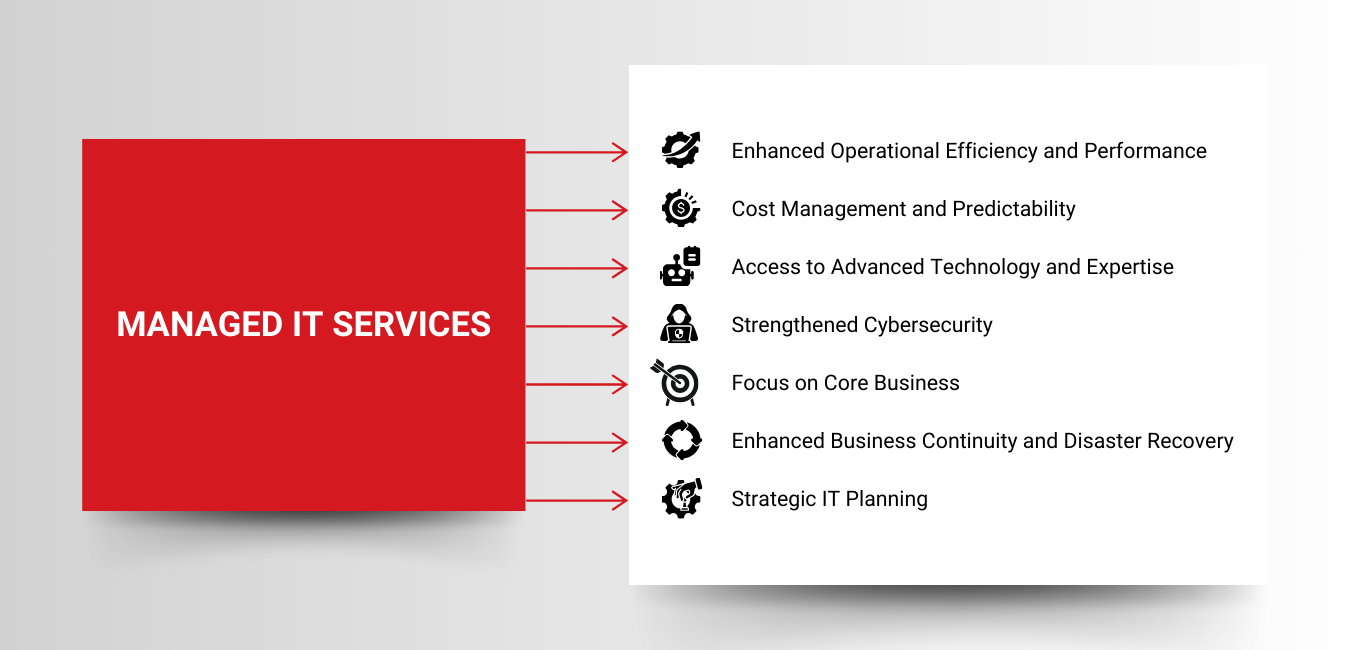
According to Gartner, global IT spending is expected to reach $5.06 trillion in 2024 which is an increase of 8% compared to the previous year. This forecast demonstrates the critical role of IT investments in business growth and strategy.
Understanding the growing importance of technology for organizations’ strategic development and competitive advantage, IT leaders recognize the need to adopt the best IT solutions, whether in-house or outsourced.
Managed IT services are among the most preferred IT outsourcing solutions today. Through this collaboration model, a company outsources its IT management and support to a third-party provider that delivers a range of services such as network monitoring, cybersecurity, and data backup to ensure efficient and secure IT operations.
This article will look into the strategic, long-term benefits of managed IT services that should be considered along the decision-making process, related to selecting the most appropriate IT outsourcing model.
Exploring the Strategic Managed IT Services Benefits
- Enhanced Operational Efficiency and Performance
Opposite to the staff augmentation model, managed services involve proactive IT management by the service provider. This includes 24/7 monitoring and support to ensure quick identification and resolution of issues, minimizing software systems downtime, and improving overall system reliability. As found by a Gartner study, organizations leveraging managed IT services see a 50% reduction in network downtime.
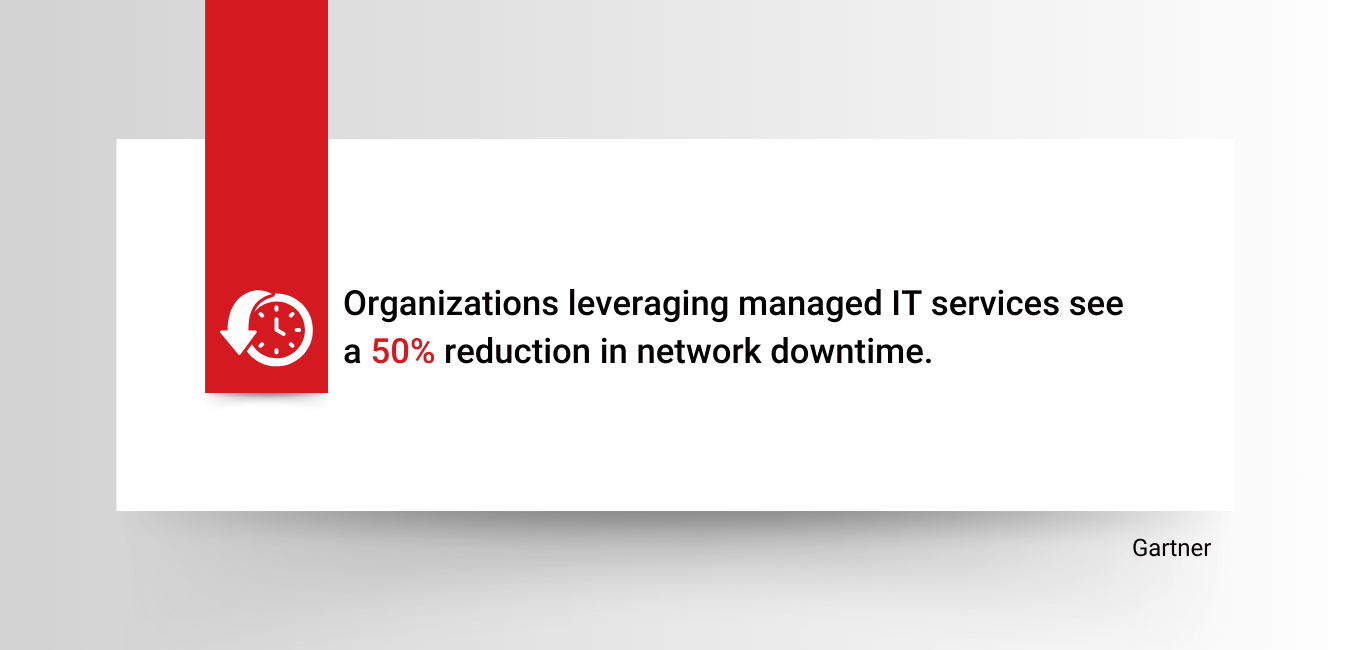
Furthermore, outsourcing routine IT tasks through the managed services model can free up internal staff for strategic projects, leading to utmost resource optimization.
- Cost Management and Predictability
Managed services typically involve a fixed monthly fee, making it easier for organizations to predict and plan their IT costs. The model also provides a good cost-saving potential due to reduced in-house staff and minimized downtime.
Outsourcing IT services can eliminate the need for hiring, training, and maintaining an in-house IT team, which can be costly. A study by CompTIA confirms this statement, showing that 46% of firms that use managed services have cut their annual IT costs by at least 25%.
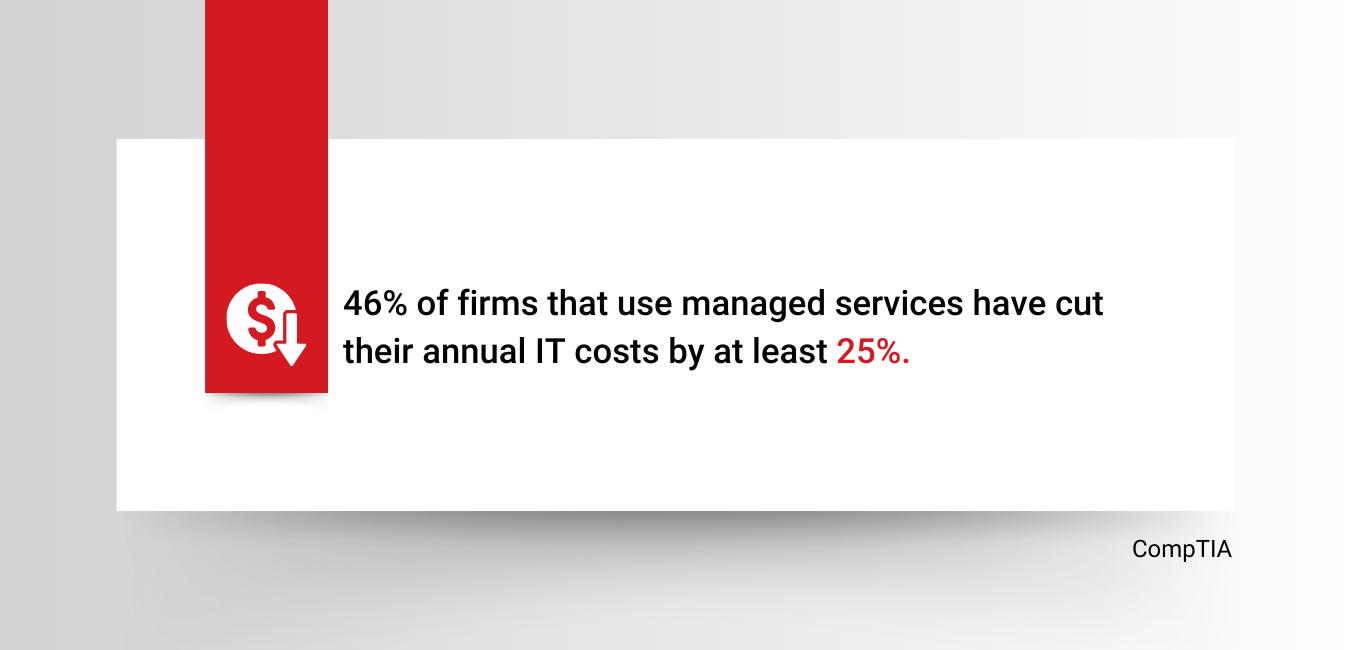
- Access to Advanced Technology and Expertise
Another one of the key managed services benefits is easy access to the latest technologies without the need for large upfront investments. This is a straightforward mechanism of leveraging specialized expertise and knowledge that may otherwise be difficult to find or afford in-house. MSPs (managed service providers) employ IT professionals with various skills and certifications, thus ensuring that the client organization benefits from the most current and effective IT solutions.
- Strengthened Cybersecurity
Managed IT service providers enhance cybersecurity by offering risk assessments, continuous monitoring, incident response, and advanced security solutions. They also support regulatory compliance through compliance assessments, policy development, access control, and data protection. This helps organizations mitigate security risks and ensure adherence to relevant industry regulations.
- Focus on Core Business
By handling the management of IT infrastructure and operations, service providers allow companies to focus on their core business functions and strategic initiatives rather than maintenance and troubleshooting. As revealed by a Deloitte survey, companies using managed services can dedicate 29% more time to strategic projects. This way, employees can also concentrate on their primary roles without being distracted by IT issues, which leads to increased productivity.
- Enhanced Business Continuity and Disaster Recovery
A study by Gartner found that the average cost of IT downtime is $5,600 per minute, which underlines the importance of reliable IT services for maintaining business continuity.
MSPs usually offer comprehensive backup and disaster recovery solutions to ensure data integrity and business continuity in case of an unexpected event. Proactive planning and risk management strategies help mitigate potential IT-related risks and minimize their impact on the business.

- Strategic IT Planning
Managed service providers can assist IT leaders in developing strategic IT plans and technology roadmaps that align with the organization’s long-term goals. They can also offer support in introducing and developing innovative solutions within the company, which can secure a competitive advantage in their industry and increase customer satisfaction.
A Recap on Strategic Managed IT Services Benefits
To sum up, IT decision-makers can leverage the above-described managed IT services benefits to enhance their organization’s operational efficiency, security, and strategic alignment, ultimately driving business growth and competitiveness.
Therefore, we encourage you to consider the advantages of this efficient collaboration model and explore it further in accordance with your organization’s needs.
As a final of this article, we would like to offer a free IT consultation with TSD experts, on which we would gladly discuss your needs and suggest the most suitable IT outsourcing model along with specific solutions.

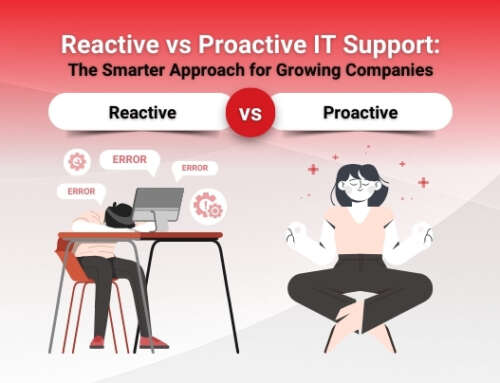

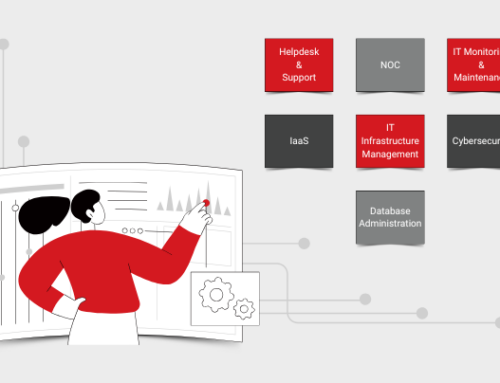
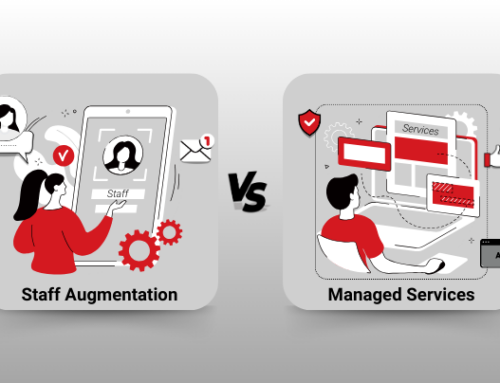



Leave A Comment